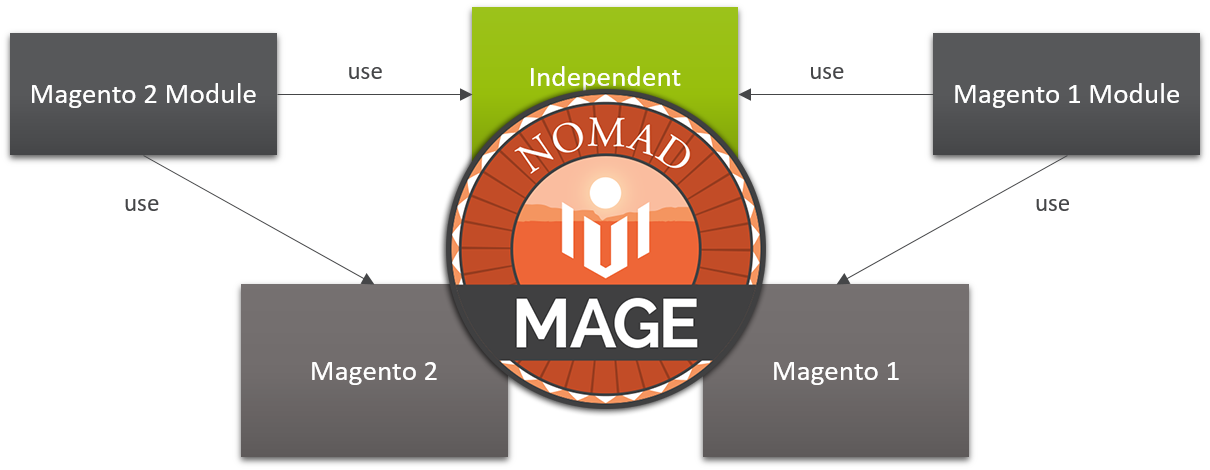Column not found: 1054 Unknown column ‘sales_bestsellers_aggregated_yearly.product_type_id’ in ‘field list
You might receive this error message in a fresh Magento 1.9.3 installation with sample data when trying to log into the admin panel. I got it after installing https://github.com/andreaskoch/dockerized-magento and found a few reports online, but no solution.
I don’t know the root cause yet, but to be able to log in again, you can set a different admin startup page:
n98-magerun config:set admin/startup/page system/config
n98-magerun cache:clear config
If you don’t have magerun installed (you should!), change the value in the core_config_data table instead and delete the cache.
Now delete the adminhtml cookie in your browser and you can log in again. Just don’t try to open the dashboard.
Full Stack Trace
a:5:{i:0;s:698:"SQLSTATE[42S22]: Column not found: 1054 Unknown column 'sales_bestsellers_aggregated_yearly.product_type_id' in 'field list', query was: SELECT COUNT(*) FROM (SELECT MAX(DATE_FORMAT(period, '%Y-%m-%d')) AS `period`, SUM(qty_ordered) AS `qty_ordered`, `sales_bestsellers_aggregated_yearly`.`product_id`, MAX(product_name) AS `product_name`, MAX(product_price) AS `product_price`, `sales_bestsellers_aggregated_yearly`.`product_type_id` FROM `sales_bestsellers_aggregated_yearly` WHERE (EXISTS (SELECT 1 FROM `catalog_product_entity` AS `existed_products` WHERE (sales_bestsellers_aggregated_yearly.product_id = existed_products.entity_id))) AND (store_id IN(0)) GROUP BY `product_id` LIMIT 5) AS `t`";i:1;s:4693:"#0 /var/www/html/web/lib/Varien/Db/Statement/Pdo/Mysql.php(110): Zend_Db_Statement_Pdo->_execute(Array)
#1 /var/www/html/web/app/code/core/Zend/Db/Statement.php(291): Varien_Db_Statement_Pdo_Mysql->_execute(Array)
#2 /var/www/html/web/lib/Zend/Db/Adapter/Abstract.php(480): Zend_Db_Statement->execute(Array)
#3 /var/www/html/web/lib/Zend/Db/Adapter/Pdo/Abstract.php(238): Zend_Db_Adapter_Abstract->query('SELECT COUNT(*)...', Array)
#4 /var/www/html/web/lib/Varien/Db/Adapter/Pdo/Mysql.php(504): Zend_Db_Adapter_Pdo_Abstract->query('SELECT COUNT(*)...', Array)
#5 /var/www/html/web/lib/Zend/Db/Adapter/Abstract.php(828): Varien_Db_Adapter_Pdo_Mysql->query(Object(Varien_Db_Select), Array)
#6 /var/www/html/web/lib/Varien/Data/Collection/Db.php(225): Zend_Db_Adapter_Abstract->fetchOne(Object(Varien_Db_Select), Array)
#7 /var/www/html/web/lib/Varien/Data/Collection.php(225): Varien_Data_Collection_Db->getSize()
#8 /var/www/html/web/lib/Varien/Data/Collection.php(211): Varien_Data_Collection->getLastPageNumber()
#9 /var/www/html/web/lib/Varien/Data/Collection/Db.php(522): Varien_Data_Collection->getCurPage()
#10 /var/www/html/web/lib/Varien/Data/Collection/Db.php(569): Varien_Data_Collection_Db->_renderLimit()
#11 /var/www/html/web/app/code/core/Mage/Reports/Model/Resource/Report/Collection/Abstract.php(285): Varien_Data_Collection_Db->load(false, false)
#12 /var/www/html/web/app/code/core/Mage/Adminhtml/Block/Widget/Grid.php(550): Mage_Reports_Model_Resource_Report_Collection_Abstract->load()
#13 /var/www/html/web/app/code/core/Mage/Adminhtml/Block/Dashboard/Tab/Products/Ordered.php(66): Mage_Adminhtml_Block_Widget_Grid->_prepareCollection()
#14 /var/www/html/web/app/code/core/Mage/Adminhtml/Block/Widget/Grid.php(643): Mage_Adminhtml_Block_Dashboard_Tab_Products_Ordered->_prepareCollection()
#15 /var/www/html/web/app/code/core/Mage/Adminhtml/Block/Widget/Grid.php(649): Mage_Adminhtml_Block_Widget_Grid->_prepareGrid()
#16 /var/www/html/web/app/code/core/Mage/Core/Block/Abstract.php(922): Mage_Adminhtml_Block_Widget_Grid->_beforeToHtml()
#17 /var/www/html/web/app/code/core/Mage/Adminhtml/Block/Dashboard/Grids.php(64): Mage_Core_Block_Abstract->toHtml()
#18 /var/www/html/web/app/code/core/Mage/Core/Block/Abstract.php(297): Mage_Adminhtml_Block_Dashboard_Grids->_prepareLayout()
#19 /var/www/html/web/app/code/core/Mage/Core/Model/Layout.php(456): Mage_Core_Block_Abstract->setLayout(Object(Mage_Core_Model_Layout))
#20 /var/www/html/web/app/code/core/Mage/Adminhtml/Block/Dashboard.php(75): Mage_Core_Model_Layout->createBlock('adminhtml/dashb...')
#21 /var/www/html/web/app/code/core/Mage/Core/Block/Abstract.php(297): Mage_Adminhtml_Block_Dashboard->_prepareLayout()
#22 /var/www/html/web/app/code/core/Mage/Core/Model/Layout.php(456): Mage_Core_Block_Abstract->setLayout(Object(Mage_Core_Model_Layout))
#23 /var/www/html/web/app/code/core/Mage/Core/Model/Layout.php(472): Mage_Core_Model_Layout->createBlock('adminhtml/dashb...', 'dashboard')
#24 /var/www/html/web/app/code/core/Mage/Core/Model/Layout.php(239): Mage_Core_Model_Layout->addBlock('adminhtml/dashb...', 'dashboard')
#25 /var/www/html/web/app/code/core/Mage/Core/Model/Layout.php(205): Mage_Core_Model_Layout->_generateBlock(Object(Mage_Core_Model_Layout_Element), Object(Mage_Core_Model_Layout_Element))
#26 /var/www/html/web/app/code/core/Mage/Core/Model/Layout.php(210): Mage_Core_Model_Layout->generateBlocks(Object(Mage_Core_Model_Layout_Element))
#27 /var/www/html/web/app/code/core/Mage/Core/Controller/Varien/Action.php(344): Mage_Core_Model_Layout->generateBlocks()
#28 /var/www/html/web/app/code/core/Mage/Core/Controller/Varien/Action.php(269): Mage_Core_Controller_Varien_Action->generateLayoutBlocks()
#29 /var/www/html/web/app/code/core/Mage/Adminhtml/Controller/Action.php(275): Mage_Core_Controller_Varien_Action->loadLayout(NULL, true, true)
#30 /var/www/html/web/app/code/core/Mage/Adminhtml/controllers/DashboardController.php(40): Mage_Adminhtml_Controller_Action->loadLayout()
#31 /var/www/html/web/app/code/core/Mage/Core/Controller/Varien/Action.php(418): Mage_Adminhtml_DashboardController->indexAction()
#32 /var/www/html/web/app/code/core/Mage/Core/Controller/Varien/Router/Standard.php(254): Mage_Core_Controller_Varien_Action->dispatch('index')
#33 /var/www/html/web/app/code/core/Mage/Core/Controller/Varien/Front.php(172): Mage_Core_Controller_Varien_Router_Standard->match(Object(Mage_Core_Controller_Request_Http))
#34 /var/www/html/web/app/code/core/Mage/Core/Model/App.php(365): Mage_Core_Controller_Varien_Front->dispatch()
#35 /var/www/html/web/app/Mage.php(692): Mage_Core_Model_App->run(Array)
#36 /var/www/html/web/index.php(83): Mage::run('', 'store')
#37 {main}";s:3:"url";s:70:"/index.php/admin/dashboard/index/key/8565326cb6d7ae31c17ba1e04f2631bc/";s:11:"script_name";s:10:"/index.php";s:4:"skin";s:5:"admin";}




